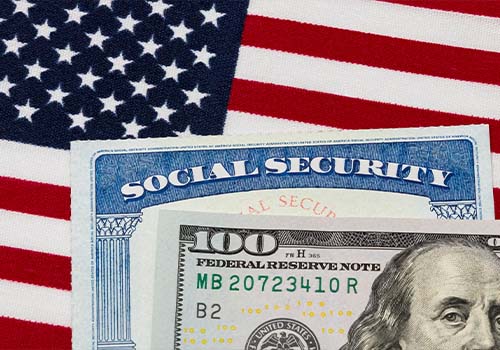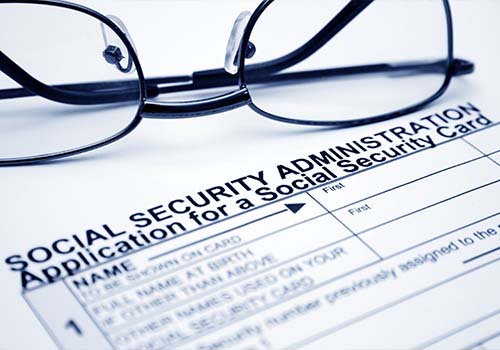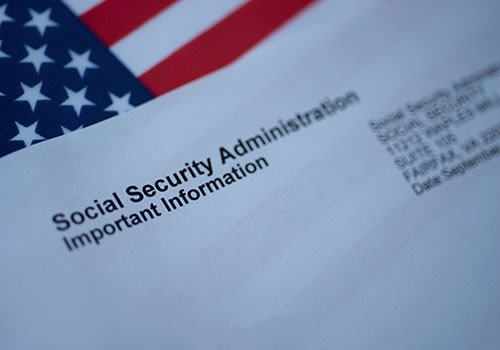You often hear about Supplemental Security Income, or SSI, in the same context as Social Security Disability Insurance, or SSDI. While the Social Security Administration handles and administers both of these programs, the two are entirely separate. There are also very distinct differences between the two regarding funding, eligibility, and payment amounts.
SSI benefits exist to help those who cannot meet their financial obligations because of their age or a disability.
Keep reading as we give you a complete guide to SSI, including what it is, how it works, and how to qualify.
What Is SSI and How Does It Work?
SSI is a Federal program in the United States that helps provide financial assistance for those unable to work due to age or disability. This program is separate and different from traditional Social Security retirement benefits or Social Security disability benefits. Here are the details about the program:
Need-Based Program
To qualify for SSI, there must be a financial need. You must have limited income and resources to qualify. This means that if your income is too high or you have too much money in the bank, then you will not be able to receive these benefits.
As a reminder, SSI is for people who have:
- Little or No Income, and
- Little or No Resources, and
- A disability, blindness or are age 65 or older.
No Work Credit Required
When it comes to regular Social Security benefits, those payments are funded from the payroll taxes that workers pay into the system. In most cases, you likely pay into the system for 30 years or more so that you can receive retirement benefits when you retire. Similarly, you must pay Social Security taxes for at least ten years to qualify for Social Security disability insurance.
The SSI program is in place to help those people who do not have sufficient work credits to receive other benefits from Social Security.
Funding the SSI Program
Most of the money used for SSI payments comes from the U.S. Treasury general funds. The payments are not funded through Social Security taxes like other Social Security programs. While the SSA does administer the SSI program, it is quite different from the other programs under the control of the administration.
Although Social Security was started in 1935, the SSI program was not enacted until 1972. Until then, it was the responsibility of each state to care for these low-income individuals who were unable to provide for themselves.
State Supplemental Benefits
Even though SSI is a Federal program, many states supplement the SSI program with payments of their own for qualifying individuals. This allows these individuals to have enough money to meet their basic needs.
SSI Payment Schedule 2024
Federal SSI payments are quite low, and they are generally not enough for a person to live on.
For 2024, individual payments only reach a maximum of $943 per month. For a couple on SSI, the payment only rises to $1,415.
While this is a great benefits program that helps many people, the monthly payments are often so low that it is still difficult to survive without some assistance from state programs.
Other Benefit Programs
Many people on SSI disability also receive food stamps as part of a nutrition assistance program to help provide food for themselves or their family members, as well as Medicaid for health insurance coverage.
KEY TAKEAWAYS
- SSI benefits are needs-based and you will need to meet certain income and resource limits to qualify.
- The SSI benefit payout will most likely only cover a portion of your expenses, you may also qualify for Medicaid, Food Stamps, Housing Assistance or other programs.
- If your SSI application is denied, you have the right to appeal.
Who Qualifies For Supplemental Security Income
What are the requirements to qualify for SSI payments?
There is no work history requirement for SSI like there is for SSDI or retirement benefits. You can qualify for SSI even if you have never worked and paid into the Social Security system. However, there are some other eligibility requirements that you must meet to qualify for this monthly benefit.
- You must be 65 or older, blind, or disabled. In some cases, children can qualify for SSI benefits if they have a qualifying disability. When it comes to a child, the disability must be a severe functional disability, and it must have lasted or be expected to last at least 12 months or result in death.
- You must be a U.S. citizen or national. Non-citizens are not eligible to receive SSI benefits, although there are other programs available for which they may qualify.
- You must also have your permanent residence in one of the 50 states, the District of Columbia, or the Northern Mariana Islands.
- SSI eligibility is restricted to those who have low income and limited resources. Your assets as an individual must total $2,000 or less. For a couple, that limit is raised to $3,000. It is also important to note what kinds of items are counted as income or assets versus which ones are not.
- While the formula for calculating income is relatively complex, there are a few general guidelines that are pretty easy to follow. The SSA will look at your “countable income” when determining eligibility for the SSI program. Some items are quite obvious. If you earn money working at a job, then that counts toward your countable income, although there are a few exceptions. Income that you get from pensions or regular Social Security also counts. Money that you receive from most government aid programs, like food stamps, does not count toward the limit. Income tax refunds also do not count toward the limit.
- When it comes to meeting the limited resource requirement, money that you have in bank accounts, stocks, bonds, or cash will count toward the $2,000 individual limit. Real estate that is not your primary residence will also count. However, your home and your vehicle do not count toward the resource limit.
If you meet all the requirements laid out above, then you can go ahead and start the application process to receive SSI benefits.
Must read articles related to SSI
- A complete guide on “How to Apply for SSI“.
- Helping a family member with a disability, learn “How to get paid to take care of a family member with a disability“.
- Find out how much money you can receive while on SSI.
- Learn more about how to win SSI appeal or how to win an SSI overpayment case.
- Understand the difference between SSI vs SSDI and if you qualify for either one.
Applying For SSI Disability: Application Options
We mentioned above that there are multiple ways to apply for SSI benefits, and you can choose the method that works best for you. Some people may have access to the internet and apply online, while others may not have that option.
The application is the same regardless of the method, but the process for each method is slightly different. Here are the three ways to complete an application:
- Online Application: The quickest way to apply for benefits is by completing the SSI application online. You just need to visit Social Security’s Apply for SSI page to begin the application.
- The application will start with some questions about the type of SSI benefits you wish to apply for.
- You will need to provide some basic information, like your name, address, Social Security number, and other identifying information.
- Once you have completed all the initial information, you will be asked to sign into your my Social Security account to finalize and sign the application.
- If you are unable to complete the application yourself, you can always have someone else assist you in completing the application on your behalf.
- After completing the initial application online, you will be asked to schedule an appointment to meet with a Social Security representative who will review your application.
- You should also receive a paper copy of the completed application in the mail for your records.
- In-Person Application: If you are unable to complete your request online, you can visit your local Social Security office to complete the application in person.
- A local Social Security representative can help you complete the application, and you can present all the required documents to this person.
- An in-person application can take a few hours, and making an appointment at the Social Security office is helpful.
- While Social Security offices are once again accepting walk-ins, you might find yourself waiting for a long time if you do not have a Social Security appointment.
- The benefit of applying in person is that the Social Security representative can easily look up your Social Security record during the application process.
- Remember you will need to provide original documents to support your application.
- Over The Phone: The final option for applying for benefits is over the phone. If you do not have access to a computer or it is too far to travel to an office, this may be your best option.
- You can call the Social Security Administration toll-free at 1-800-772-1213 (TTY 1-800-325-0778). Representatives are available Monday through Friday from 8:00 AM to 7:00 PM.
- If representatives aren’t available when you initially call, you may be asked to schedule a telephone appointment for a later date.
- After verifying your identity, the representative can assist you with the application process.
- This method will usually take the longest, and you will likely still need to submit original documents to the SSA office to complete your application.
Regardless of which application method you choose, there is some documentation that you will be required to produce as part of the process. Here are examples of the types of documents you might be asked to provide:
- Verification of Identity and Marriage Status: Birth certificate, driver’s license, Spouse or former spouse’s social security number & birthday, where you got married.
- Current Income: W-2 forms, Retirement benefits/pensions, Alimony, State disability payments or Self-employment tax returns from the previous year
- Financial Resources: Bank statements, Car title/loan statements, Life Insurance policy or Trust fund statements
- Medical Info: Medical records or disability diagnosis, Admit/Discharge papers for hospitals
- Housing: Rental Contract, Landlord’s name & number, Name & Birthday of those living with you.
- Military Info: Military service records.
- Direct Deposit for Benefits: Routing and Account number for your bank
Remember that original documents are required in most cases, and photocopies of some of these documents will not be accepted.
TIP
You must keep the SSA office informed of any changes affecting your SSI eligibility. For example, if you take a new job with a higher income, then it might bring an end to your SSI payments.
Appealing A SSI Denial Letter

Just because your initial application for benefits is denied, that does not mean that all hope is lost. You still have the right to appeal that decision. Appealing an SSI decision follows the same process and procedure as appealing an SSDI determination. You first would request a reconsideration of your case. You can file this appeal online, but it must be done within 60 days of your initial determination. Failure to file your appeal within the specified timelines can result in a dismissal of your appeal.
If you still believe that the decision is incorrect after the reconsideration stage, then you can request a hearing. This is where you have the opportunity to go in front of an administrative law judge and make your case. The judge will hear evidence from you as well as expert witnesses who may testify to your medical history or ability to work. Again, this appeal must be filed within 60 days of the reconsideration decision.
After the judge’s ruling, your case can be appealed to the Social Security Administration Appeals Council. Finally, the highest level of appeal is to the Federal Court. Very few SSI appeals go all the way to the Federal Court, although there is a small percentage of cases that go that far. Many disabled people have their initial application denied and end up getting benefits awarded during the appeals process, so do not give up if your application gets denied. If you are truly entitled to benefits, then continue to push your case and consider getting an attorney to help you.
One of the biggest tips for winning your SSI appeal is to have all your documentation in order and do not miss deadlines. Your medical records need to be complete and thorough so that the judge or council can see evidence of your disability.
The Bottom Line
SSI recipients rely on this program for financial assistance to help meet their basic life needs. There is no work history requirement to qualify for this program, although you must show a financial need to receive these payments.
You might also be entitled to food stamps, Medicaid, or other government assistance as well. If your application for benefits is denied or you disagree with the benefit amount, then you can appeal the decision to the Federal Court.
Many applicants who are initially denied benefits are successful in their appeal.
Frequently Asked Questions
SSI is generally a needs-based program. Benefits are available to those who are U.S. citizens or qualifying aliens age 65 or older, with limited resources & income.
Other adults and children may qualify if they are blind or disabled and have limited income.
Individuals generally need to have less than $2,000 in resources and must have limited income.
No, Social Security retirement benefits and SSDI are based on work credits and income history.
To receive these benefits you must have paid Social Security taxes for a specific number of years.
SSI benefits DO NOT require work history. These benefits are designed to help those with limited income meet basic life needs.
People who receive SSI benefits, must not be capable of working due to age or disability and they must have limited income or resources.
Social Security retirement benefits are not restricted based on income or resource limits.
SSI monthly payments are fairly low. In 2024, an individual may receive a maximum monthly benefit of $943, while a couple can only receive $1,415.
These amounts are set by the Federal Benefit Rate. This is why it is often necessary for individuals receiving SSI benefits to get assistance from state programs that provide other financial help.
No, they are two very different programs. The main difference between SSI and SSDI is that SSDI benefits require a work history.
You must have paid Social Security taxes to qualify for SSDI. SSDI payments are typically higher than SSI payments, and there is no requirement that you have a financial need to qualify for SSDI payments.
Another difference is the fact that you can qualify for SSI benefits even if you don’t have a disability, as long as you are 65 or older and have limited income and resources.
Some people might attempt to collect both unemployment and Social Security disability; however, the eligibility requirements for those two programs are fundamentally at odds with each other.
Participation in the SSI program can automatically qualify you for many other important benefits.
These may include food stamps, Medicaid, housing assistance, free cell phones, utility assistance, and other programs.
Since SSI is a needs-based program, many people must participate in other assistance programs to afford their necessities.
We have additional resources about the SSI program and other benefit programs.
You can find a Social Security Administration office near you by using our SSA office locator and searching for your closest location.





